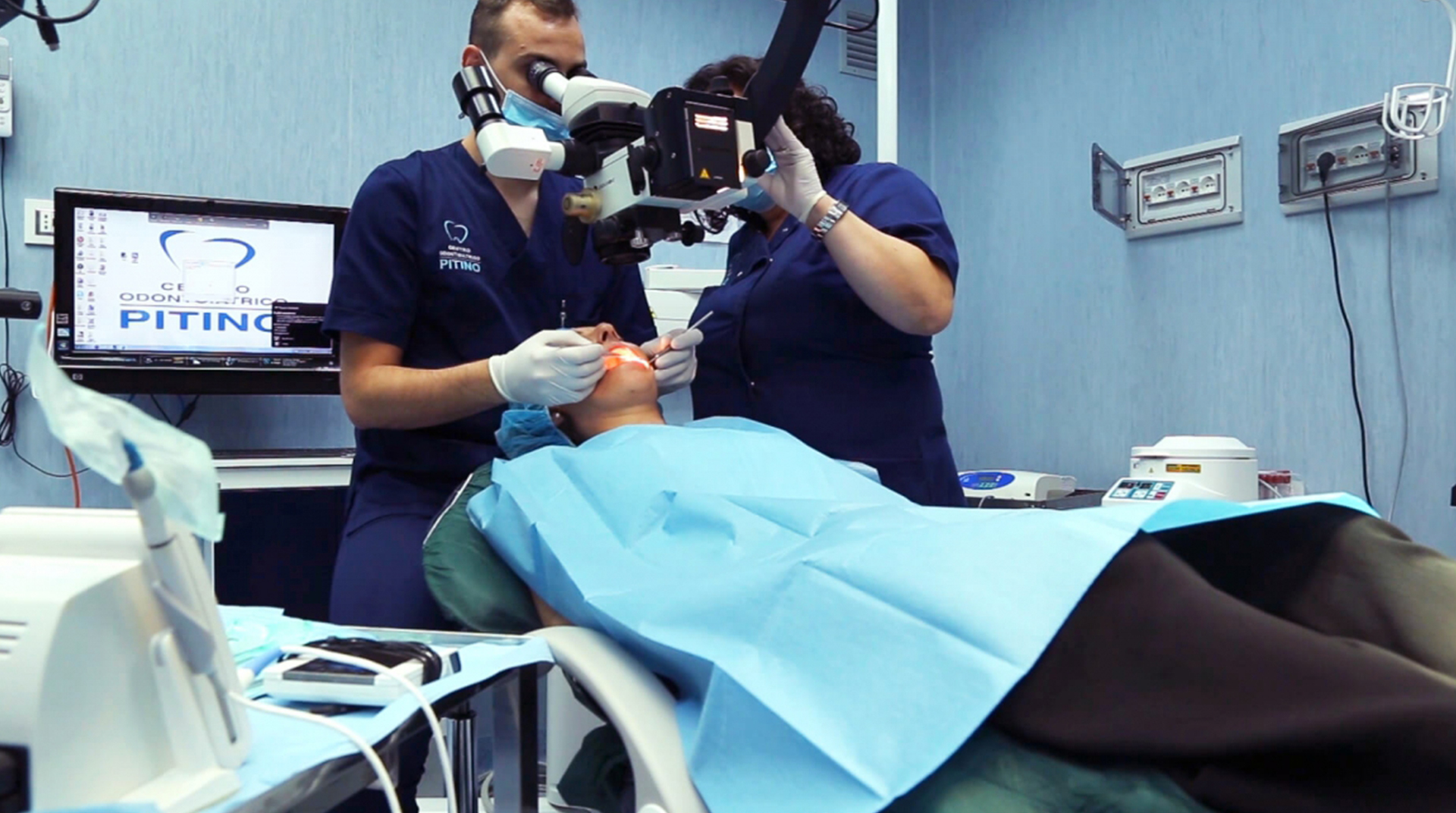The endodontium of the tooth can lose vitality when vascularisation and innervation of the pulp are compromised due to:
- trauma
- carious diseases
- physical agents (thermal and chemical factors)
Such noxious stimuli can trigger strong, painful symptoms that are indicative of irreversible pulp damage, which can be cured by a tooth canal treatment of the affected tooth, more commonly known as "devitalization" or "root canal therapy" (a conservative therapy that allows the tooth to be kept and prevent extraction).
Even an already devitalized tooth may be the cause of painful symptoms that can be attributed to a canal that has probably not been sealed perfectly and therefore allows entrance of bacteria from the oral environment or from the bloodstream.
Once devitalised, the tooth dehydrates because it is no longer moistened by the bloodstream. As a result, it loses the resistance it had prior to occlusal loading when it was vital.
In order to obtain highly predictable results endodontic therapy is followed by reconstructive therapy on the devitalised tooth:
- Direct restorations in composite with or without endodontic fiber post
- Indirect restorations (Inlays / Onlays composite or ceramic)
- Dental capsules and / or bridges in glass polymer or ceramic



